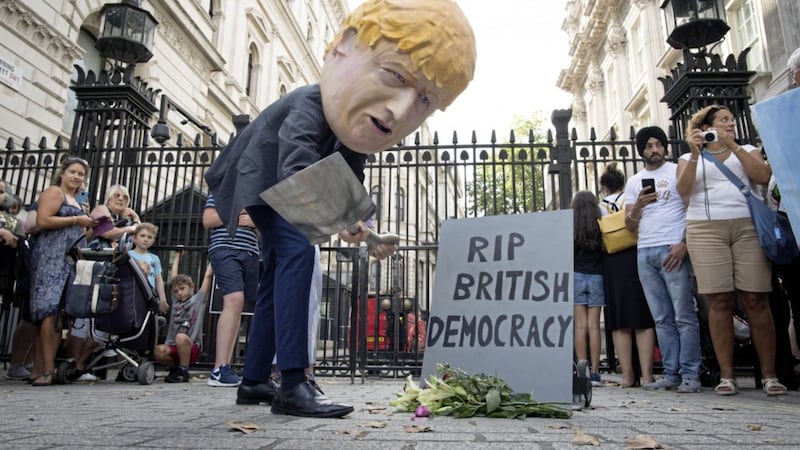I voted Leave in June 2016. I do not regret that decision. David Cameron confirmed that the decision, whichever way it went, would be implemented by Parliament.
No-one in the Remain campaign, let alone any of the leading lights across the various pro-remain platforms, disagreed with him.
The message was loud and unambiguous: if the UK voted to leave the EU (and no required threshold for victory, or second vote, was ever mentioned, either) then Parliament would do what was required for the UK to leave.
Cameron scuttled off within hours of losing; an action which was fairly typical of him.
But Theresa May confirmed that she would honour his commitment to implement the Leave decision.
When she opted for a general election in 2017 she reaffirmed the commitment, as did the Labour Party.
A clear, substantial majority of MPs elected then were elected on the back of manifesto pledges to deliver Brexit.
That hasn't happened. Indeed, many MPs across all of the parties have gone out of their way to thwart the Leave commitment and undermine their own manifestos.
And therein lies the problem. Millions of people believe that the democratic will of a majority of UK citizens (and again no opt-out provisions were built into the referendum in the event of majorities in Scotland, Wales or Northern Ireland voting Remain) is being ignored by Parliament.
So it's no surprise that many of those people believe that Boris Johnson is, in fact, now rescuing democracy from the anti-democrats.
As it happens, I'm very uncomfortable with what Johnson has done. I accept that he hasn't acted unlawfully in seeking prorogation.
A new Prime Minister with a new government does need to assemble the content of a Queen's Speech and set out a legislative programme by which he can be judged at a future election.
It has been normal for decades for Parliament to be in recess for three weeks in September to October while the main parties held their annual conferences.
But here's the difference this time. Parliament can be recalled fairly quickly during a recess; I don't think that's the case during prorogation.
Leaving the EU is the most important decision the UK has had to make in well over a generation and it needs parliamentary input.
The deadline for that decision is just over eight weeks away. Johnson has no national electoral mandate to fall back upon on. He has no majority in the House of Commons to fall back upon.
What he is doing conveys the impression that he is using tactics (not in themselves unlawful or, strictly speaking, non-constitutional) designed to protect himself from scrutiny, ambush (from his own side, too) and potential defeat.
He has also shifted the dynamics from what was a political crisis wrapped up in an ongoing civil war within the Conservative Party, to a battle between the Executive and Parliament and another battle between Parliament and the will of the people.
I have no idea what the outcome of those battles will be, but I do know that pushing through with a no-deal Brexit or having Brexit stopped (and there are still a few methods by which that is possible) will not result in a cessation of hostilities.
Johnson's supporters say that his main aim right now is to persuade the EU that he is serious about no-deal as an option - although, personally, he doesn't favour that outcome.
He argues, and he's probably right, that the EU never took Theresa May seriously.
So, will this new strategy mean that they'll take him seriously? Will they look at other options for the backstop?
Would they be prepared to make changes to the Withdrawal Agreement (bearing in mind that he voted for it in January)? Will increasing worries within the Irish government force a rethink by the EU?
Or is Johnson more concerned with outmanoeuvring the Brexit Party in advance of a pre-October 31 general election?
The mess we're in is not just Johnson's. Parliament has been serially, monumentally useless since June 2016: constantly dithering, plotting, game-playing and shifting from one dog's dinner to another.
If nothing else Johnson has forced all sides down to the wire and given them a very short time to make their final calls.
That's no bad thing. This mess has continued for far too long.








